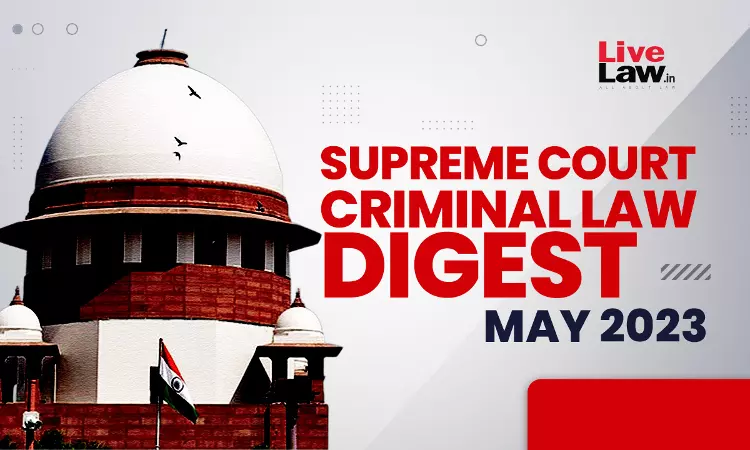- Home
- /
- Supreme court
- /
- Supreme Court Criminal Digest May...
Supreme Court Criminal Digest May 2023
LIVELAW NEWS NETWORK
29 Sept 2023 5:15 PM IST
Accused cannot be denied bail on the sole ground that the co-accused has not surrendered. Sebil Elanjimpally v. State of Odisha, 2023 LiveLaw (SC) 474Accused were not traceable - Once the body was found and police entered the scene, after the first information report, even if the accused had been away and innocent, his instinct of self-preservation would have got the better of him to evade...
Next Story



